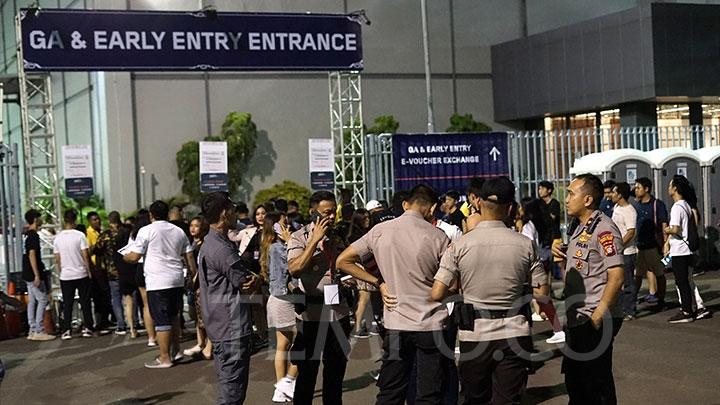January 17, 2025 | 06:29 pm

TEMPO.CO, Jakarta - The increase in value-added tax on luxury goods from 11 percent to 12 percent shows the arbitrary way that the administration of Prabowo Subianto produces policy. He and the Finance Ministry have improperly circumvented the provisions of the law for populist reasons.
Law No. 7/2021 on the Harmonization of Taxation Regulations mandates a VAT increase of 1 percent on January 1, 2025. There was public opposition to this policy because of the current economic malaise: buying power is weak, the number of middle-class people is falling, and there are redundancies in many industries. Claiming he was accommodating the public interest, Prabowo cancelled the VAT increase for consumer goods, but applied it to luxury items.
At first glance, this move by Prabowo could quell public anger. But this discretion is a bad principle for making policy. If he really did not want to add to the burden of the people through a VAT increase, he should have proposed a change to Law No. 7/2021. After being inaugurated on October 20, 2024, he had an opportunity to discuss a VAT increase with the House of Representatives.
Prabowo has good reasons for asking for this revision. As well as a weak economy, an increase in VAT is not in line with his campaign promise to not increase taxes, but rather to expand the tax base to increase state revenues. Prabowo did not use his first three months in office to discuss this important policy.
He gives the impression of going back and forth on this policy. A one percent increase in VAT was tempting because it would bring in an extra Rp75 trillion. He could then use this increase in state revenues to fund his flagship program, the free nutritious food project. Therefore, he waited for public reaction towards this policy and abruptly changed position by circumventing the regulation once he learned of the public’s opposition.
Finance Minister Sri Mulyani Indrawati bent over backwards to find a way to accommodate public protests and still provide the funds needed by Prabowo to pay for the free lunch program. As a result, VAT was increased for luxury goods, while VAT on consumer goods was left at 11 percent. Sri Mulyani found ‘other values’ in the Value-Added Tax Law for consumer goods accommodated by the strange formula 11/12 x 12 percent.
By taking this shortcut with the regulations, Prabowo actually wanted to increase taxes that burden the public in order to fund his priority program. He did not care about the mostly middle to lower-income voters who would have felt the effects of this policy. Now he comes across as a hero because of his cancellation of the VAT rise on consumer goods, even though it used an improper method.
In the next five years, it is possible that we will see more of Prabowo’s amateurish ways of running the nation. The VAT subterfuge is just one way at the start of his administration that ignores the proper methods of governance.
8 Countries with Highest Tax Rates in 2025, Strict Tax Regulations
5 jam lalu

This article uncovers the list of countries with the highest taxes in the world, where the figure exceeds 50% with strict regulations applied.
5 Best Tax-Free Countries in 2025: Pleasant Places to Live
6 jam lalu

As income tax becomes a universal concern, these best tax-free countries remain desirable places for people willing to renounce their citizenship.
Indonesia Issues Regulation to Implement Global Minimum Tax
1 hari lalu

The tax, which is being shepherded by the OECD, applies to multinational companies with an annual global turnover of more than $770 million.
Prosecute the Extorting Police Officers
1 hari lalu

The National Police Headquarters should ensure that the police officers who extorted money from the audience of the DWP 2024 concert are prosecuted.
World Bank Says Indonesia Has Worst Tax Regulation, Luhut: We Are Compared to Nigeria
1 hari lalu

Chair of National Economic Council was offended by World Bank's statement saying that Indonesia is one of worst countries in collecting taxes.
Total Failure of the Food Estate Program
2 hari lalu

Following the failure of its pilot project, the government is actually extending the food estate program in North Sumatra.
Israel Uses Rp8.8 Trillion in Palestinian Taxes to Pay Electricity Debt
4 hari lalu

Israel plans to use tax revenues collected on behalf of Palestine to pay off a debt of 2 billion shekels or equivalent to Rp8.8 trillion.
Recurring Conflict in National Strategic Projects
7 hari lalu

Another bloody clash occurred on Rempang Island. The embers of conflict failed to be extinguished in national strategic projects.
The Irony of Industrial Gas Crisis
8 hari lalu

PGN's gas supply for industrial customers fell sharply this year, resulting from poor management of the energy and gas business.
Indonesian Minister Airlangga Promises Tax Breaks for Hong Kong Investors
8 hari lalu

Indoneia's Coordinating Minister for Economic Affairs, Airlangga Hartarto promised various tax relief facilities to Investors from Hong Kong.

 1 month ago
35
1 month ago
35













































